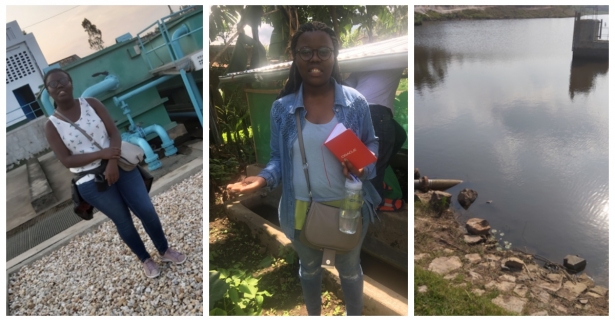This summer, I was fortunate to go to Rwanda to conduct internal market research for To The Waters, a social enterprise that aims to use engineering, innovation, and entrepreneurship to promote access to water, sanitation, hygiene, and nutrition (WASH-N) in developing nations. To The Waters is an initiative that I have been working on since November 2018. Over the summer, I visited social entrepreneurs in the fields of (WASH-N) and initiated partnership with the administration of the Ruhango district located in the Southern Province in which To The Waters now operates. I also visited primary and secondary schools located to learn about the status of WASH-N at these schools.
The purpose of these visits was to gather information that would help me develop innovative solutions to promote access to improved WASH-N. The goal was to define To The Waters’ market size better, establish partnerships and good relations with institutions and other social enterprises, and engage advisors and mentors.
The first part of the visits was to get acquainted with social enterprises/companies/NGOs. The first enterprise I visited was called Golden Insect, which is located in the northern part of Rwanda. Golden Insect rears insects such as worms, grasshoppers, and black soldier flies. I had an amazing time visiting Golden Insect as I learned more about how worms can be used to manage bio-waste, particularly human waste, which is of interest to To The Waters. To solve the sanitation crisis around the world, To The Waters is currently working on innovative solutions to treat human waste so that it can be reused.
In addition, I visited PitVidura, where I spoke with the CEO, Rachel Sklar in Kigali. PitVidura is a social company that empties pit latrines in Kigali by charging households a service fee for emptying the toilets. PitVidura takes the waste to a dumping site. What surprised me is how human waste from these latrines is not treated. This got me interested in exploring the best ways to mass manage human waste. The problem of untreated human waste is ubiquitous since 200 million tons of human waste goes untreated each year. Because of this visit, To The Waters came up with an idea to build an organic fertilizer plant where human waste will be transformed into organic fertilizer at a commercial level.
Another institution I visited is Water For People, which is a non-profit organization that funds projects to provide high-quality drinking water and sanitation services, accessible to all, and sustained by strong communities, businesses, and governments. I met one of the sanitation officers for Water For People who talked about what they do, and how To The Waters can be supported by a bigger organization like Water For People. It was an interesting time to discuss about the best ways to enhance water and sanitation in developing countries.
I also visited the Association International du Development rural (AIDER), a water treatment plant located in the Ruhango sector. I visited this plant because it supplies water to a sector where To The Waters started its first activities. I wanted to understand where water for Mbuye sector and other sectors comes from and the challenges that the plant faces in providing this water. One of the things I learned was the reason behind the intermittence of water in Mbuye sector. The plant manager told us that the pumps rely on fuel instead of electricity. When communities are out of fuel, the water stops. Also, the pipes in use are very small, which makes it hard to supply enough water to communities. I was very excited to hear about how the plant manager is interested in working with To The Waters to design a water filter that can purify drinking water, which To The Waters hopes to sell at a low cost.
From my research visits, I learned that starting something big is possible when one is ready to take risks and walk on a path that is unclear. Entrepreneurship always brings surprises. I also learned how partnering with bigger companies can help small companies and enterprises grow through mentorship and financial support in their early stages. I am grateful for the Empower grant because this opportunity exposed me to social entrepreneurship in developing nations. It showed me that the journey ahead is long, but with dedication and diligence, one can impact many lives around the world.

